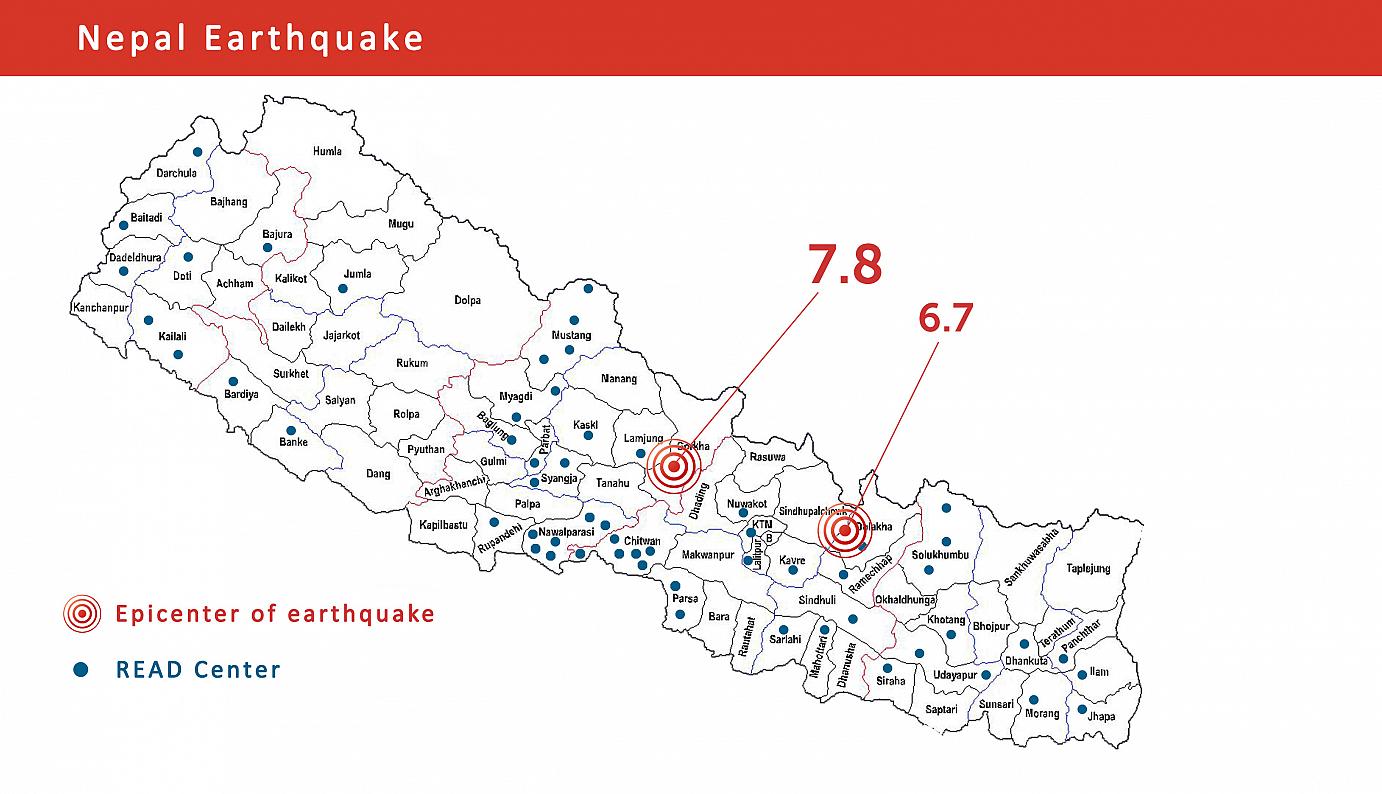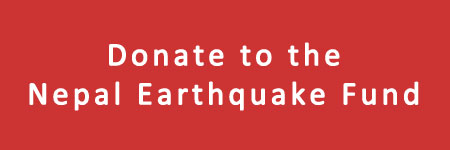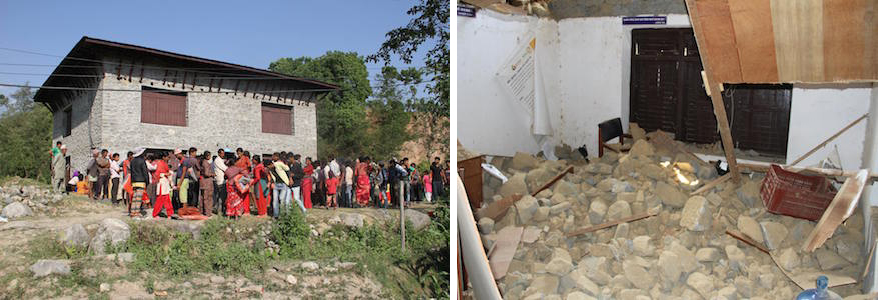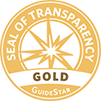

Please donate to READ’s Nepal Earthquake Fund. 100% of funds directly support our partner communities and Nepal team so they can provide relief services and information through READ Centers, help families rebuild their lives, and repair damaged Centers.
Immediate disaster relief:

READ Global provides 1.9 million rural Nepalis with critical access to information and resources through 59 community library and resource centers (READ Centers). While many of our communities have been hard-hit by the earthquakes, our Nepali staff have been working hard since day one to keep this vast network of READ Centers open, and to coordinate disaster relief efforts with municipal bodies and INGOs that may not have a connection to rural communities on the ground. In some villages that have not yet been reached by other response efforts, and where most people have lost their homes, the READ Center is the only building still standing strong.
- Shelter: In several communities, a majority of homes have been destroyed but the READ Center is still standing. Many villagers are currently taking shelter inside the Centers. READ Staff are also distributing tarps and tents as temporary shelter.
- Communications and energy: READ Centers are often the only place in rural communities with electricity (solar panels), which allow villagers to charge cell phones – a communication life-line. Centers also offer free access to computers and the Internet. READ Staff have begun distributing solar lamps to villages that have no other power source.
- Food and water: Volunteers at Centers are mobilizing their communities to collect and distribute rice, milk, salt, and other food for nearby communities in need. READ staff in Kathmandu are purchasing supplies and sending them to our Centers in the hardest-hit areas.
- Medical support: Centers are organizing blood drives, bringing in doctors to conduct health check-ups inside the Centers, and distributing medicine, face masks, and gloves. A few Centers even have ambulances that are providing emergency support.
Long-term rebuilding:

We are in this for the long haul. While millions of dollars have been funneled into disaster relief efforts, help is not getting to many rural areas. Because READ already has a strong presence in 127 rural villages across Nepal, we are uniquely positioned to assist in both the short and long term.
- Community trust and co-ownership: READ Centers are owned and operated by local communities, which means that they are trusted platforms for relief efforts. All donations of food, water, and medical supplies are being organized and distributed by the local leadership and volunteers in each community, so there is less concern about graft and corruption.
- Rebuilding families’ lives and homes: Our local partner communities are already organizing fundraisers so they can directly support their neighbors in rebuilding – a testament to the power of community engagement and initiative. A majority of Centers in Nepal also have savings cooperatives, which will allow members to take out loans to rebuild homes in the coming months. Because the monsoon season will begin in a matter of weeks, and many families have lost their crops, READ Centers are organizing agricultural extension outreach. READ will additionally offer trauma counseling for earthquake victims.
- Rebuilding Centers to ensure long-term access to information and services: Once the immediate relief needs have been met, we will be rebuilding damaged READ Centers, so that they can continue to support communities by providing trainings in health and sanitation, vocational skills, literacy, agriculture, and more.
— At least twenty-two READ Centers have been damaged by the earthquake. We will need to repair or rebuild these Centers to ensure our communities have ongoing access to information, services, and education. —
What is a READ Center?
Under normal circumstances, READ Centers provide essential resources: literacy, livelihood skills development, agricultural training, women’s empowerment programs, micro-loans, and health services. This is all done through a community-owned building that includes:
- A library with 3-5,000 books in local languages
- A computer room with free access to the Internet
- A training hall that can be used by partner organizations and visiting medical professionals
- Women’s and children’s sections with specialized resources
- Communications and A/V equipment
- Click here to learn how you can help.
- Click here for the latest field updates on our earthquake relief efforts in Nepal.
- Click here to download a pdf overview of this page.




